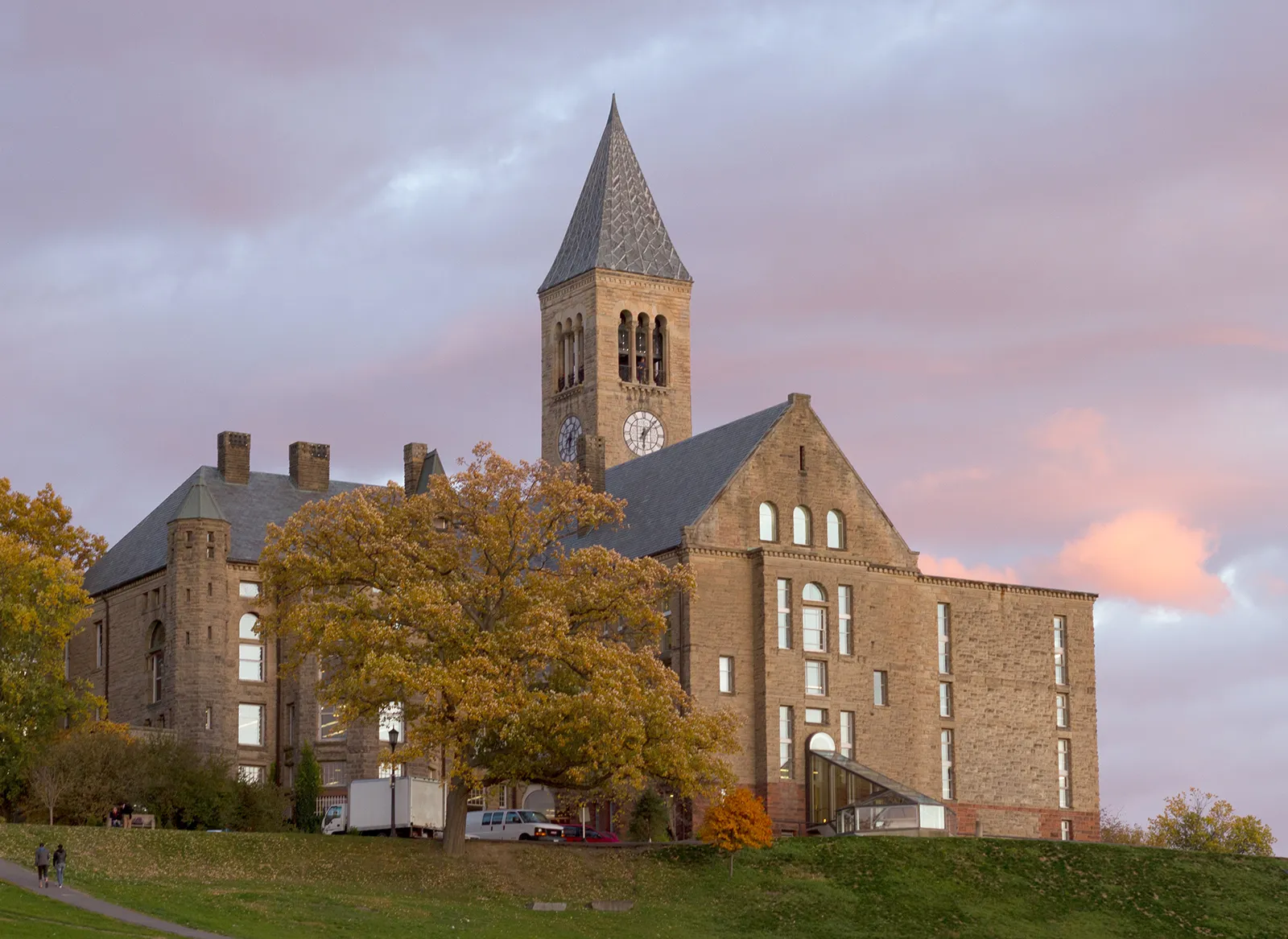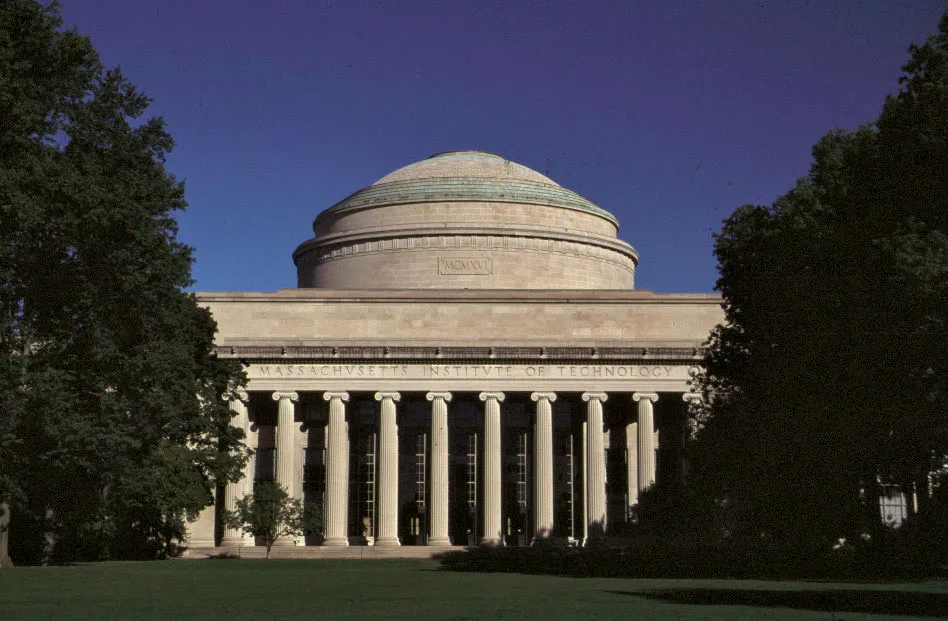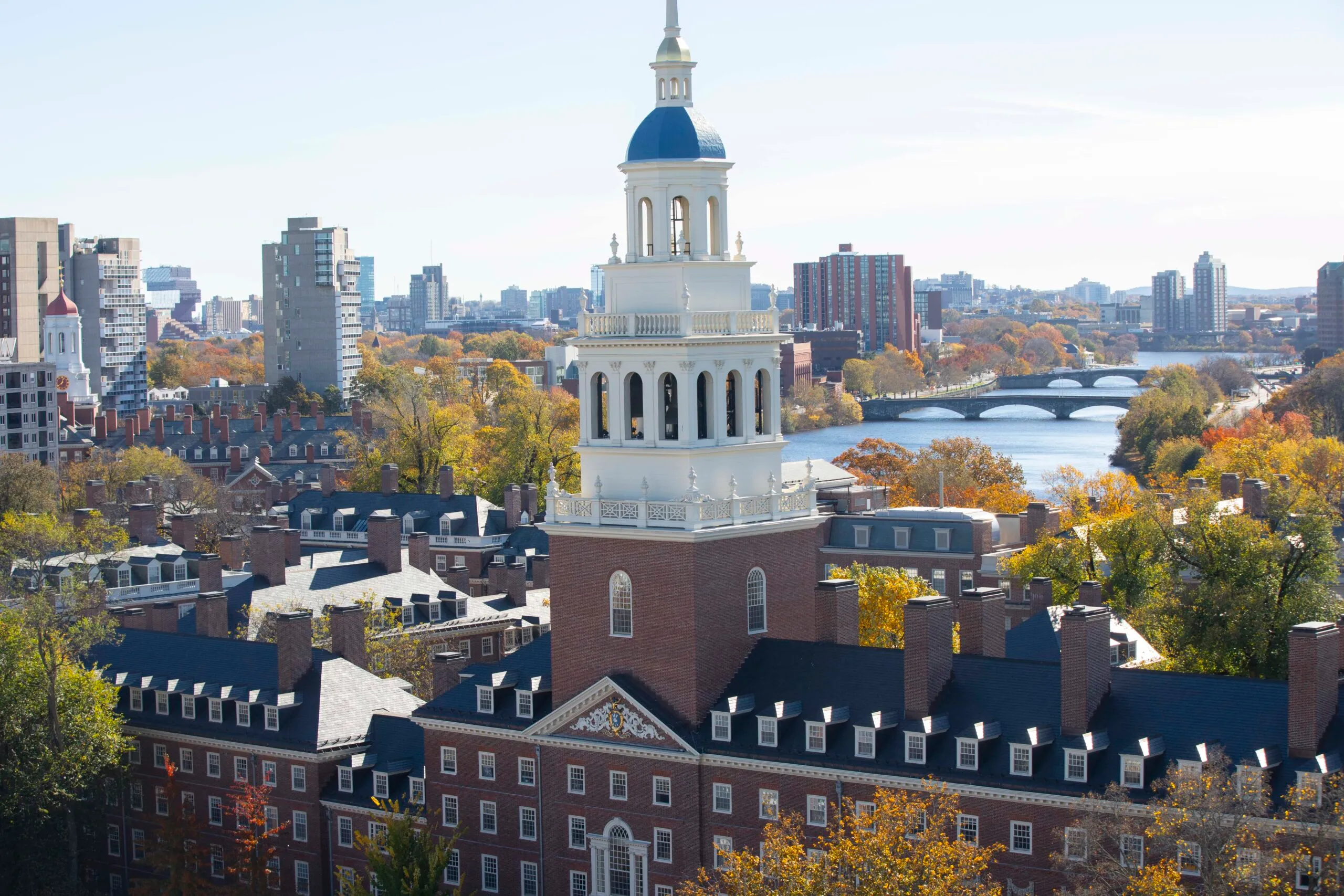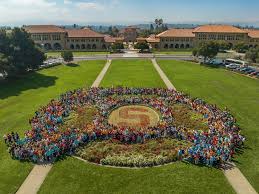Cornell University
Nestled in the picturesque town of Ithaca, New York, Cornell University stands as a beacon of higher education, renowned for its commitment to academic excellence, groundbreaking research, and a diverse, inclusive community. Founded in 1865 by Ezra Cornell and Andrew Dickson White, the university has grown into one of the world’s most prestigious institutions, consistently ranking among the top universities globally. With its unique combination of public and private partnerships, a wide array of academic programs, and a vibrant campus culture, Cornell continues to shape the future by empowering students to think critically, act creatively, and lead with purpose.
Founding Vision: “Any Person, Any Study”
Cornell University was established with a revolutionary vision: to create an institution where “any person can find instruction in any study.” This founding principle, articulated by Ezra Cornell, set the stage for the university’s enduring commitment to accessibility and interdisciplinary learning. Unlike many of its Ivy League peers, Cornell was founded as a coeducational and nonsectarian institution, breaking barriers and welcoming students from all walks of life. Today, this ethos remains central to Cornell’s identity, fostering an environment where diversity of thought and background is celebrated.
Andrew Dickson White, Cornell’s first president, shared this progressive vision. He sought to create a university that combined the rigor of traditional liberal arts education with practical, hands-on learning in fields like agriculture, engineering, and architecture. This innovative approach laid the groundwork for Cornell’s unique structure, which includes both privately endowed colleges and state-assisted statutory colleges.
Academic Excellence Across Disciplines
Cornell University is home to 16 colleges and schools, each offering a wide range of undergraduate, graduate, and professional programs. These include the College of Arts and Sciences, the College of Engineering, the School of Hotel Administration, the College of Agriculture and Life Sciences, and the Cornell SC Johnson College of Business, among others. This diversity of academic offerings allows students to pursue their passions while engaging in interdisciplinary collaboration.
One of Cornell’s most distinctive features is its statutory colleges, which receive funding from the State of New York. These include the College of Agriculture and Life Sciences, the College of Human Ecology, the School of Industrial and Labor Relations, and the College of Veterinary Medicine. This unique public-private partnership enables Cornell to address pressing societal challenges, from food security and sustainability to labor relations and animal health.
Cornell is also a global leader in research and innovation. The university consistently ranks among the top institutions in the world for research output and impact. Its faculty and students are at the forefront of discoveries in fields such as biotechnology, artificial intelligence, environmental science, and social sciences. Cornell’s research initiatives are supported by state-of-the-art facilities, including the Cornell High Energy Synchrotron Source (CHESS), the Atkinson Center for a Sustainable Future, and the Cornell Tech campus in New York City.
Global Presence: Cornell Tech and Beyond
In recent years, Cornell has expanded its reach beyond Ithaca with the establishment of Cornell Tech, a groundbreaking graduate campus located on Roosevelt Island in New York City. Opened in 2017, Cornell Tech focuses on technology, entrepreneurship, and innovation, bridging the gap between academia and industry. The campus is a hub for cutting-edge research and collaboration, offering programs in computer science, engineering, business, and law. Cornell Tech’s emphasis on applied learning and real-world problem-solving has made it a magnet for aspiring entrepreneurs and tech leaders.
Cornell’s global presence extends even further through its international programs and partnerships. The university operates study-abroad programs in over 80 countries, allowing students to gain global perspectives and engage with diverse cultures. Additionally, Cornell has established research collaborations with institutions around the world, addressing global challenges such as climate change, public health, and economic inequality.
Vibrant and Inclusive Campus Community
Life at Cornell is defined by its vibrant campus culture and strong sense of community. With over 1,000 student organizations, there is no shortage of opportunities for students to get involved, whether through academic clubs, cultural organizations, performing arts groups, or community service initiatives. The university’s commitment to diversity and inclusion is reflected in its numerous cultural centers, including the Africana Studies and Research Center, the Asian American Studies Program, and the LGBT Resource Center.
Cornell’s residential college system further enhances the student experience by fostering close-knit communities within the larger university. Each residential college offers its own unique programming, from lectures and workshops to social events and intramural sports. This system encourages students to form lasting connections with their peers and faculty mentors.
Athletics also play a significant role in campus life. Cornell’s Big Red teams compete in the Ivy League and ECAC Hockey, with a proud tradition of excellence in sports such as lacrosse, hockey, and wrestling. The university’s athletic facilities, including the newly renovated Schoellkopf Field and Lynah Rink, provide students with top-notch venues for competition and recreation.
Commitment to Sustainability and Social Responsibility
Cornell University is deeply committed to sustainability and social responsibility. The university has set ambitious goals to achieve carbon neutrality and reduce its environmental impact. Initiatives such as the Cornell Climate Action Plan and the Sustainable Campus initiative demonstrate Cornell’s leadership in addressing climate change and promoting sustainable practices.
Beyond environmental sustainability, Cornell is dedicated to making a positive impact on society. The university’s Engaged Cornell initiative encourages students, faculty, and staff to engage with local and global communities through service-learning, research, and outreach. Whether it’s through volunteer work, internships, or collaborative projects, Cornellians are empowered to use their knowledge and skills to address pressing social issues.
Notable Alumni and Legacy of Leadership
Cornell’s legacy of excellence is reflected in its distinguished alumni, who have made significant contributions to virtually every field of endeavor. Among its notable graduates are Ruth Bader Ginsburg, the late Supreme Court Justice and champion of gender equality; Toni Morrison, the Nobel Prize-winning author; and Bill Nye, the beloved science educator and engineer. Cornell alumni also include leaders in business, such as Sandy Weill, former CEO of Citigroup, and David Einhorn, founder of Greenlight Capital.
The university’s emphasis on leadership and public service is evident in the many Cornellians who have gone on to hold prominent positions in government, academia, and the nonprofit sector. From Nobel laureates to Pulitzer Prize winners, Cornell alumni continue to shape the world in profound and meaningful ways.
Conclusion: A University for the Future
As Cornell University looks to the future, it remains steadfast in its mission to educate, innovate, and inspire. With its unwavering commitment to academic excellence, diversity, and social responsibility, Cornell is poised to continue its legacy of leadership and impact. Whether through groundbreaking research, transformative education, or meaningful community engagement, Cornellians are equipped to tackle the challenges of the 21st century and beyond.
In the words of Ezra Cornell, “I would found an institution where any person can find instruction in any study.” Today, Cornell University stands as a testament to that vision, a place where curiosity is nurtured, boundaries are pushed, and the future is shaped. For students, faculty, and alumni alike, Cornell is not just a university—it is a lifelong community and a source of endless possibility.
Share this content:










Post Comment